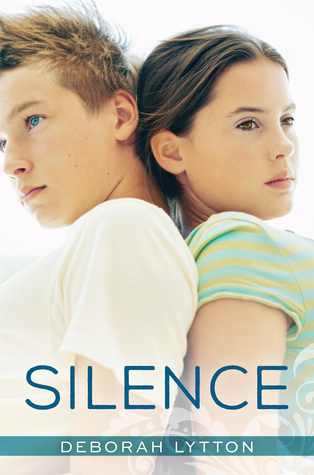
Stella has big dreams, Broadway dreams, and she's been blessed with a great voice. But just when things start to look like they're really happening for her, she goes to party (I don't consider this a spoiler as I KNEW it was going to be a party) and gets hurt. She gets hurt in a manner that takes away her hearing. And while our (deaf people) voices vibrate and we can control our volume for the most part, deafness usually results in tone deafness--I know this. So naturally, Stella fears her dreams have gone down the toilet, and quickly.
And she doesn't know how to do, how to be, anyone besides who she was before.
I appreciated that story line and I could relate, even though my hearing loss was gradual, even though I was able to properly prepare myself, as much as one can for such a circumstance, I got it. The day is happening around me. Not to me.
Stella is only 15, so it's a shock to her. She wallows in self pity for much of the story. I confess this irritated me after a while. I understood it, mind you, but it still irritated me, partly because I couldn't help but see all the advantages she instantly had that certainly weren't available in my day. She instantly has captioning (I didn't get that until my teens. Don't even get me started on how difficult it was to understand the tv until then), a cell phone with text messaging (I was in my twenties), and cochlear implant(s).
And yet, she being 15, she doesn't realize all the things she's lucky to have. This made sense, but doesn't mean I didn't find her attitude a little frustrating.
I must say I appreciate the research the author did into all this. I think teenagers will learn a lot from this book and perhaps see the everyday things they take for granted.
And then a boy vows to show Stella in 17 days how she can live with her new disability, that she can still be happy and do things. And with this comes new insight and growth. I thought I knew who I was. But I was limiting myself to being one thing. Defining myself by my talent. There's more to me than that. More I can give. More I can share.
The author tackled a lot of things in this story: abuse, trauma, hearing loss, anxiety, divorce, stuttering. And her writing is beautiful. It's really too beautiful though, nearly poetic. And while this prose would be fabulous in literary fiction or poetry, it seemed out of place in a young adult book.
The tightness in my chest begins to loosen like a rosebud beginning to bloom in the sun. Petals slowly open.
I don't know many people--adults or teenagers--who sit there and think in metaphors like that. And it got to be a lot, so much that I began to skim at points.
I love that this heroine isn't just cured. Too often when deaf heroines are tackled, it seems they can't have happy endings without suddenly being cured, like you can't be deaf/HoH and have a happy ending-an insult, really. I love the cochlear implant story line but at the same time I feel a great educational opportunity was squandered, as not much time was spent on them. What does she notice after they're implanted? What's it feel like? What's in there exactly? And I'm confused as to the one bandage when she was deaf on both sides. They only go in one side? More details would have been appreciated.
The romance was a over dramatic, their feelings for each other a bit over the top, but they are fifteen and at that age, everything is over dramatic. At times, however, they said things way advanced for their ages. And to be perfectly honest, it's easier to read lips when people speak normally. I can't say I really bought the "I only understand him because he stutters" thing, because as a lipreader, I can say that would make it harder.
But all in all, it's worth the read. It should be on every teenager's to read list this year.
I received a digital ARC of this via Netgalley.



No comments:
Post a Comment